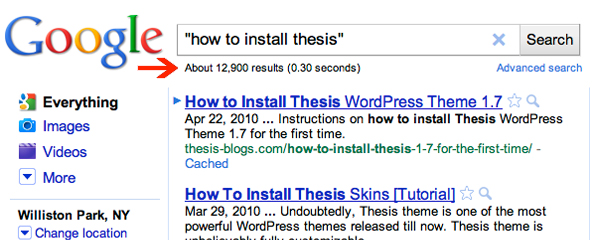 Getting high search engine rankings for your blog takes work. A lot of work.
Getting high search engine rankings for your blog takes work. A lot of work.
While we all know the benefits of SEO, sometimes there just isn’t enough time to focus on both SEO and developing a quality product or business.
What can you do?
If you don’t have the budget for an SEO consulting firm, this article is perfect for you.
Everyone knows that creating fresh, engaging content helps build a loyal following and attract links. However, if you’re looking to improve your SEO with no budget, you can tweak your existing articles to prime them for high search engine rankings.
Now I’m not saying your website will shoot up into Google’s top 3 overnight. I’m also not going to tell you to stuff as many keywords into your post as possible. If I did, that would be cheesy and I would be lying.
Instead, I will say this: if you focus on these 7 key areas of on-page SEO, you can improve your search engine rankings. How do I know this? Because it worked for me.
Conduct Keyword Research
You could try and guess what what people type when they use a search engine, but with free Keyword Research tools available, it’s wasted effort.
What are some of the best, free keyword tools? You could use the Google keyword planner or Wordtracker. In addition, you can use Google Trends to research trends in search phrases.
If you’re looking for a premium keyword research tool, look no further than SEObook.com, Moz, or Raven Tools.
Focus on Low-Competition Keyphrases
Don’t waste your time going after highly competitive keywords with on-site optimization because you won’t be able to nab them.
So, how do you know if a keyword or keyphrase is competitive?
Take one of the phrases you found while conducting keyword research, type it into Google search using quotations (ex. “how to install the Thesis Theme”), and then look at the number that appears below the search box.

Figure 1: See the 12,900 results below the Search Box? That’s the number you’re looking for.
If the number is large (over 75,000), I’d avoid it because it’s highly competitive. If it’s small, I’d focus on it because it should be much easier to score a top ranking.
Note, just because a keyword or phrase isn’t competitive doesn’t mean it won’t send traffic. And if it doesn’t send much traffic, that doesn’t matter either because the traffic it does send is highly targeted. For example, I once optimized a post that landed the #1 position in Google and it helped me make a $1500 sale.
Choose One Keyword or Phrase, and then Write or Tweak Your Article
While you want a keyphrase with little competition, you’ll also want it to have some search traffic (greater than zero). Then, either write a post that targets that keyphrase or go back through some of your older articles and tweak them for a specific phrase.
I’m not saying that you should let that keyphrases dictate what you write about. Instead, find a phrase that relates to your topic, and craft a helpful article around it. Remember, quality content matters. The higher the quality, the better chance it will garner links and then rank in search engines.
For example, if you run a blog about Kangaroos, and one of your researched keyphrases is “what do kangaroos eat”, then you might want to write a blog post about that.
Use Your Keyphrase In Your Post Title and Title Tags
Yep, simple as that. Use the keyphrase in the title of your post and in your title tags.
Repeat the Keyphrase in Your Article.
You want to build a loyal following, so don’t go crazy with this. Instead, what I mean is, if you want to rank for your keyphrase, you must use it. Avoid creating nicknames or trying to be clever. In the end, clear and concise wins. As a rule of thumb, try to include your keyphrase early on in your article or in a H2 tag. While this may have little impact on your rankings, it will help show your readers that they’re reading the right piece of content.
Use the Keyphrase in your Meta Description tags
Using keywords in your meta description tags does not help you rank higher. However, when you include them, when people search on Google for a specific keyword, Google bolds the keyphrase in the search results. So, while it may not help you rank higher, it will encourage people to click on your search results.
Find Images Related to Your Keyphrase
Think about it. If you were looking for information on Kangaroos, when you visited a website, would it make sense to have a picture of a Kanagaroo on it? Absolutely.
So, when you publish your articles, ensure that you find related images and use your keyphrase in the alt description of your image. This is beneficial for two reasons: first, it helps search engines see that you’re trying to create a complete piece of content, and second, it’s great for accessibility.
Other SEO Factors
There are, of course, other factors that influence your search engine rankings that I don’t talk about here. However, if you want to focus on building your business and creating great content, these 7 areas can help kick-start your SEO without becoming a full-time job. If you have any other quick hints that you think people will find useful, feel free to leave a comment.
